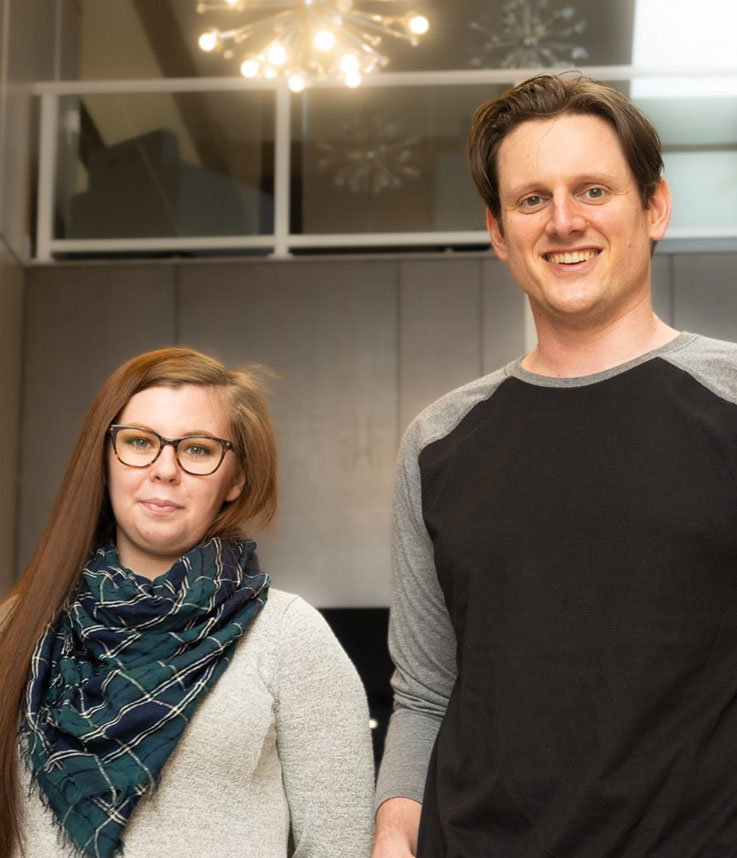 IUP Literature and Criticism doctoral students Joseph Canton and Meghan Cronin have been recognized as 2022 HASTAC scholars.
IUP Literature and Criticism doctoral students Joseph Canton and Meghan Cronin have been recognized as 2022 HASTAC scholars.
Cronin plans to look at how Shakespeare can be studied and taught through digital means, with two scheduled presentations on the topic in 2022. She has previously conducted computational analysis of Shakespeare plays using the text visualization tool Voyant. “I am tremendously honored and thankful that IUP English has recognized my award. I am excited about the avenues of exploration HASTAC participation opens up for me,” she said.
Canton plans to lay the groundwork for his dissertation, helping to develop an academic podcast at IUP. “Incorporating podcasting will broaden the audience for my dissertation research and, through the process, should help expose others to how podcasting can complement literary study,” he said. Canton’s project aligns with the newly formed national Humanities Podcast Initiative and broader trends in the “Public Humanities.”
Serving as the scholars’ IUP/HASTAC mentor is Kenneth Sherwood, professor of English and co-director of the Center for Digital Humanities and Culture at IUP. “It was a pleasure to nominate Meghan and Joe as two of our most creative, energetic, and forward-thinking students,” he said. Sherwood became acquainted with their work in two IUP courses: ENGL 857 Digital Composition, Literature and Pedagogy; and ENGL 865 Literature as a Genre: Podcasting, Narrative, Poetics, and Sound.
Cronin and Canton are among only four IUP students ever to receive this recognition. “I am happy that they will enjoy this opportunity to nourish their scholarship and professional development,” said Sherwood. “Knowing Joe and Meghan, I am confident they’ll also bring their experience back to IUP to enrich the graduate community.”
Only 100 scholars each year are recognized by the Humanities, Arts, Science, and Technology Alliance and Collaboratory (HASTAC), a national network administered by the CUNY Graduate Center and Dartmouth College with more than 16,000 members from over 400 affiliate organizations. HASTAC aims to support young scholars’ “rethinking pedagogy, learning, research, and academia for the digital age.”